The big snip: why childless young men are having vasectomies
Dr Justin Low has seen the fear in a man’s eyes countless times. He’s watched grown men weep. Yet vasectomies for young childless men are rising steeply. Why?
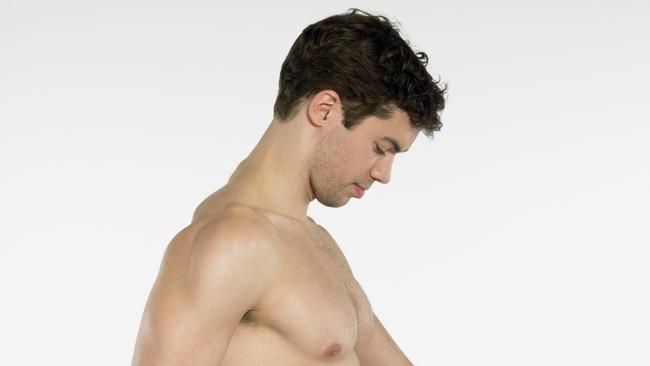
Dr Justin Low has seen the fear in a man’s eyes countless times. He’s watched grown men weep and had a few leap off his operating table and run into the streets, half naked and entirely shoeless.
It takes a lot to rattle “The Ball Whisperer”, as one of Australia’s most prolific vasectomists is known, yet he remembers being utterly taken aback the first time a young, childless man walked into his office and asked for the snip. “It was a shock. I do remember how I felt the first time a guy with no kids came to me, and it put me on the back foot,” Low recalls, still recoiling slightly. “I wasn’t prepared for it, I mean, not just as a doctor but as a lay person, there’s just this funny thing we’re brought up to think, doesn’t everyone want kids?”
Back when he started out at Marie Stopes Australia a decade ago, his job was very much about helping men who felt they’d had enough children, or possibly more than enough. But after that first childless man, there were a few more, then a lot, and today Low, whose Sydney clinic does about 50 procedures a week, says it’s not unusual for between a third and a half of his patients on any given day to be childless. And they’re getting younger; so many are in their twenties that his organisation now offers compulsory counselling to any childless man under the age of 30 who inquires about a vasectomy.
READ MORE: ‘Bobbling beacons of manhood’: Trent Dalton reflects on his beloved ‘plums’
Low’s observations are reflected in Medicare figures that show the number of Australian men under the age of 25 getting vasectomies has more than doubled since 2015 and in the last financial year, during the pandemic, grew by 26 per cent. The number of men aged 25 to 34 having the procedure also rose 22 per cent in 2020-2021.
So where have these men sprung from, and what’s driving them not just to say they don’t want children – an oft-enough expressed statement, particularly among younger men – but to make sure they won’t?
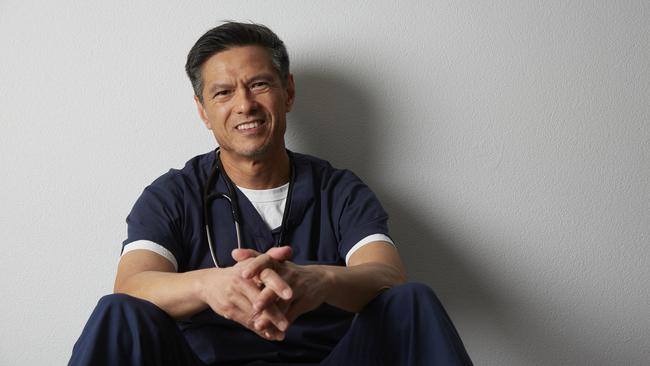
The childless patients in Low’s clinic fall largely into two unusual groups. First, there are the men who might be described as displaying an inverse biological imperative, or a deep certainty that they never want to be a father. “Then there are the ones who say to me: ‘I just don’t want to bring children into a world like this,’ ” he says. “It’s about sustainability for them, it’s about climate change and the future of the planet, and if anything, Covid-19 and the pandemic has only reinforced that feeling, that dread, and we’ve had more and more guys coming in talking about that.
“I’ve also had people get very fired up about sustainability issues. They’ll say to me, ‘But doctor, surely you know, surely you’ve read the studies! The single best thing you can do for the planet is not to have a child.’ I mean, we’ve all been influenced by our times, so I can understand that thinking – but still. That’s what’s so shocking, these are people who don’t say, ‘I just don’t want kids’, they’re people who, at a different time in history, in another era, they might have wanted them.”
When he suggests sperm banking to these men, just in case they change their mind, “they’ll tell me that if they do want to have kids down the line, they’ll just adopt or foster, because that’s better for the planet. “So many of these people I meet have that passionate commitment to the sustainability cause, they’re so determined and they’ve really thought it through. I’ve been impressed by that, but still, very surprised.”
There are, of course, some men who fall into both of Low’s childless camps. Like Michael, 40, from country Victoria, who says at first that he’s never been passionate about having children, but later admits he’s “not totally devoid of that need”. Michael works in the disability sector and admits to a philosophically pessimistic streak. He had his vasectomy three years ago, after discussing the option with his wife for several years before that. “Becoming a father was something I felt deeply about, and we discussed it in depth,” he explains. “We never drew up a list, but we did look at the pros and cons, and in the end, there were just too many reasons not to have kids.
“The biggest one is just a pretty negative outlook for the future. I’m not happy about having that view – I look at optimists and I really envy them – but I just see mounting problems [in the world] and a lack of action and solutions. With the challenges I’m betting humanity will face, the fact is it’s just not something I’m happy to impose on a child.”
Michael, a vegan, says he’s taken into account factors from political unrest to climate change, cyber warfare and battles over food security. “I used to be very much in the overpopulation camp, and thought maybe I was doing my bit by not adding to it, but I’ve decided now that it’s more about our rate of consumption; I think if we could work on that we would actually be able to sustain our current population, and even bigger ones, but unfortunately we’re a reactive species – we don’t like to think of the future, we wait for crises and then react to them.”
These are not views Michael shares very often, although he did explain them to Low. Michael gets to keep his own counsel because most people assume, at his age, that he hasn’t had kids because he’s unable to. “People think it’s a sensitive issue, but if someone does ask, I tend to stick to the idea that I just don’t feel that strongly about having kids – I generally leave out the bit about ‘We’re all f..ked’,” he chuckles. “More than 90 per cent of my friends have kids, and I don’t discuss it with them, because I don’t want them to feel that I’m judging them in some way for making that decision.”
Michael admits his mother is disappointed that he won’t be providing grandchildren, but his father is right behind the decision. “He thinks it’s a fantastic idea, because he believes humanity is headed off a cliff, too.”
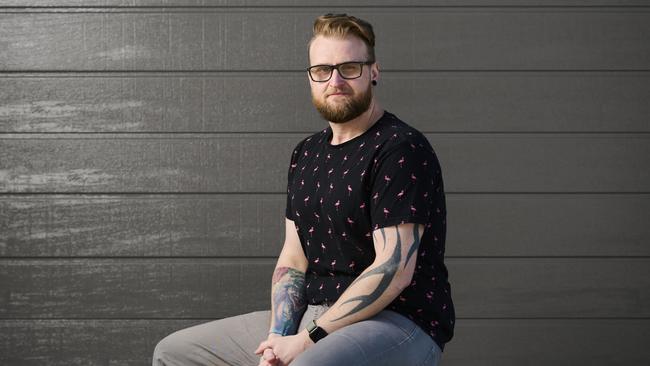
Canberran Kain Harris says his decision to have the snip at the relatively tender age of 36 was driven by many factors, but now, more than a year later, he’s surprised more people aren’t doing it. “It is incredible to me that, even now, this year, in the middle of a global pandemic, people still want to have kids – talk about different priorities,” Harris says. “There is this sense of existential dread at the moment, you look at the future that’s coming and you just think, what are the next generation going to be left with? There are going to be limitations on how we live, there are going to be struggles, and why put another life through that unnecessarily?”
Harris says there was a point in his life where he wanted children, but then he met his fiancee, who made it clear from day one that she didn’t want to be a mother, and eventually offered to undergo tubal ligation. “But in the end it had to be me, because most doctors won’t do that procedure for a woman who’s never had children.”
Dr Vijay Roach, president of the Royal Australian and New Zealand College of Obstetricians and Gynaecologists, says the only regulation for doctors is that it’s illegal to sterilise a minor, so denying a procedure like tubal ligation to a woman is a personal choice made by a medical professional, and one that’s quite common. “Unfortunately, I think we really have a very paternalistic view of medical care – ‘I know what’s best for you, you’re too young to make that decision,’ and I don’t think that’s appropriate,” Roach says. “As medical professionals we should respect people’s autonomy. There are a lot of reasons that people make these decisions.”
Harris, who works in IT, says his vasectomy decision was made easier as a result of his previous employment in the social security sphere, back when people were being financially encouraged to reproduce by the federal government’s Baby Bonus. (The last time our national birth rate trended upwards, hitting a high of 13.8 births per 1000 people, was from 2003 to 2008; it’s been falling ever since, and is now at 12.4. In 1950, by comparison, it was 23.1).
“It’s shocking and horrifying how many people have children who really shouldn’t have them, and I saw a lot of people come through the door who had kids but clearly didn’t want them, they just wanted that Baby Bonus – and money is a terrible motivation to have children,” he says. “I was becoming desensitised, working there, seeing people who put themselves before their children, and that really is selfishness.
“People say it’s selfish not to have kids, to put yourself first, and that is part of my decision – I like being able to travel, to hang out with friends, to go out, and I don’t know how I would have the time to have a child. But I think it would be more selfish to have a child and then not give it your full attention.”
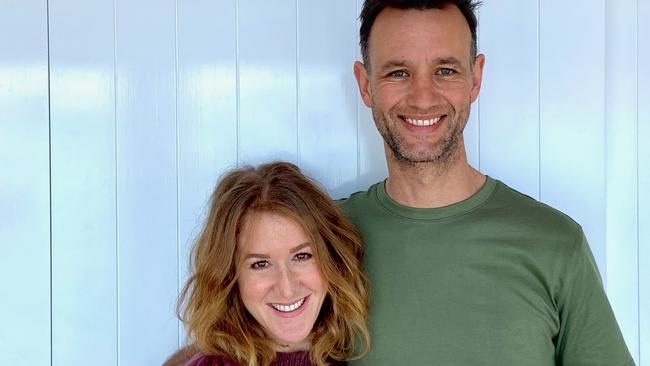
Bryn Burnell, 45, is a commercial pilot who lives on Scotland Island in Sydney’s north. He says he and his partner have had the term “selfish” thrown at them a lot after their decision to remain childless, particularly since his vasectomy in 2019 (he tried to get one in his early 30s, but his doctor discouraged him). Burnell says he really likes kids, “but that’s not the same thing as wanting them”.
“I honestly believe that people who decide not to have kids put a lot more thought into that decision than people who do have them. And once you have kids, you stop thinking about that decision, whereas if you don’t have them, you’re constantly re-evaluating that existentialist decision in terms of what you’ve decided to do with your life.”
Burnell says his partner, Mia, cops “a lot more shit” than he does, and that people often assume he has somehow stopped her from having children, when in fact it was very much a joint decision. “I’m probably more child-friendly than she is as a result, because if she’s seen holding a baby – a niece or a nephew – you hear people quietly start having that discussion, ‘See, look, she wants them…’ ” Burnell says he does look at people with children and wonder how they’re doing it all, and how much they’re missing out on.
He, too, has considered the environmental impacts of his decision, but is careful not to give himself too much credit for that. “I’d like to be honest enough to say that it’s a lifestyle choice, first and foremost, but not having kids is probably the greatest contribution that you can make to the environment in a global sense – it has to be, doesn’t it?” he ponders.
Not everyone considers the global impact of not breeding, of course; for many people it’s a far more personal call, based on keeping their relationship alive. Matt Lippiatt, 40, works in insurance, but he and his wife Elissa also volunteer as pre-marriage counsellors for their church, Hillsong, and in that role their personal decision to end any indecision about having kids (he had his procedure last year) does prompt plenty of questions.
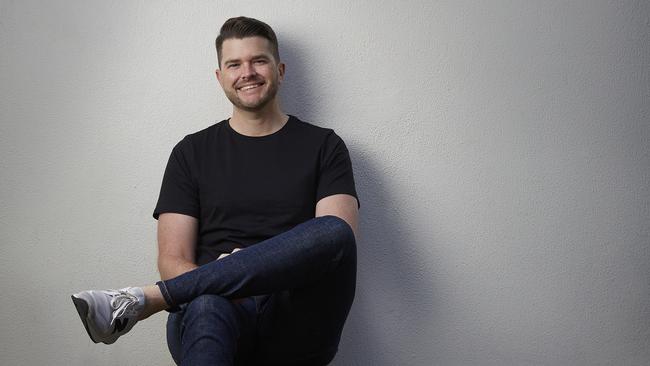
After marrying when they were both just 22, the debate over whether to have or to hold off on children went on for many years. “My wife has never had any inkling of wanting kids, not that she hates kids, but it was never something she saw for herself… we knew we loved each other and wanted to be together, and that one of two things would happen – either Elissa would soften, or my desire to have kids would soften, and we’d meet in the middle. Like many couples, you have these big issues you have to work through,” Lippiatt explains.
“I was in my mid-30s, and it’s not that I thought I wouldn’t enjoy being a dad, but I’d seen friends go through it, I had a good understanding of the sacrifice entailed, so I weighed it up and I just thought, ‘If I can’t give it 100 per cent commitment, I’m not going to do it.’”
What often surprises him is that other people – many of whom say they live vicariously through his Instagram feed of child-free holidays and nights out – accuse him of making a purely self-indulgent decision. “I think a lot of that, the root cause underneath it and the most interesting insight, is that our decision was challenging for people who perhaps didn’t think about their decisions quite so deeply, who had kids and then looked back and thought, ‘Oh, maybe I got it wrong – maybe I should have thought about it a bit more,’” Lippiatt says.
“You see some people who pretend their kids don’t exist – they leave them with a nanny, almost as if having kids was just ticking a box, while other people, their kids become like demigods, they dominate their lives.”
A lot of the people the Lippiatts counsel from their church are getting married because they’ve decided it’s time to have kids, and many of them are genuinely shocked when it’s pointed out that you can do one without the other. “They’re really challenged, like they didn’t even know that was an option,” Lippiatt laughs.
“We say to couples to make sure you actually link up with people who have kids and get them to sit you down and tell you all the things that suck about parenthood, to tell you honestly what it’s like, and it’s quite an eye-opener for a lot of them. I mean, really, you wouldn’t move to another city unless you spoke to some other people who’d lived there, would you?”
Deborah Bateson, the medical director of Family Planning NSW, says she’s also seen a surge in young, child-free men getting vasectomies, and she points out that Australia was already a world leader when it comes to the procedure (we have the second highest rate in the world, after New Zealand, with one in four men over the age of 40 having the snip).
“It’s very interesting that Australia’s rates are so high, because we’ve always seen it as a case of men in relationships wanting to take that responsibility, thinking that the woman has been carrying the load in terms of contraception, and that it’s their turn to do something. But now, obviously we’re also talking about single men who’ve decided to be child-free, because they don’t want to bring a child into the world, so we may have to look at that differently,” Bateson says.
Family Planning NSW has also noticed a spike in demand outside metro areas, with a two-day pop-up clinic in Dubbo, western NSW, last November quickly being overwhelmed by the demand to the point where they had to establish a fly-in, fly-out service to fulfil the waiting list.
Low, who as well as running his Sydney clinic is also the national director of vasectomy services for family planning organisation Marie Stopes, admits that, at first, the idea of performing vasectomies on childless young men raised uncomfortable questions for him and many of his colleagues. “I’ve got a surgeon in Melbourne who’s not comfortable doing anyone under 25 – that’s just his personal feeling, and we respect that, we won’t override that,” Low explains.
“When I started out it was very unusual to have guys with no kids coming in, and some of them were very aggressive when I said, ‘Look, I’m not happy to do it today, I think you should think it over.’ We made the decision to initiate the independent counselling in 2018, so when they come in to see a doctor we can review that counselling and be sure we know they’ve thought it through.” The number of men involved in that counselling program grew more than 30 per cent in the 12 months to July this year.
Low says research has shown that patients are 12.5 times more likely to request a reversal procedure if they underwent a vasectomy in their 20s than if they’d waited until they were older. “We don’t want to be paternalistic – I mean they’re adults, they can make their own decisions – but we all remember what we were like at 22,” he says. “A lot of them don’t think about how permanent it is, effectively, that reversals are only 50 per cent successful, and they get less so the further on you are from your vasectomy. A lot of them might not have thought about sperm banking, in case they change their minds.”
Medicare figures show that more than 6500 men under 34 had the procedure in 2020-21, compared with 3970 in 2014-15. The increasing number of childless people seeking sterilisation mirrors our country’s falling fertility rate, and similar trends around the world. According to the Australian Bureau of Statistics, the total fertility rate hit a record low of 1.66 babies per woman in 2019, after declining steadily from 1.97 in 2009. It is the lowest rate since the ABS began keeping records in 1935. For a population to remain stable without immigration you need a fertility rate of 2.1. Other countries, most infamously Japan but also the UK, US, Italy and South Korea, are also experiencing significant fertility declines.
Dr Liz Allen, a demographer from the ANU, says that if Australia’s rate falls below 1.5 we will be in serious danger of an ageing and declining population, and that as a result “Australia’s economic future is in trouble”. An ageing population puts more strain on spending on things such as health, pensions and aged care, and means there are fewer working-age people to contribute to government coffers to pay for that spending.
“Young people are really getting a raw deal,” Allen says. “The nation wants young people to be the economic lifeline, ensuring the country’s future – but at the same time these pressures, added to existing generational inequalities, might mean that young generations won’t accomplish the things we take for granted: secure housing, secure careers and family.”
The pandemic does not bode well for the future, either. Research by the Australian Institute of Family Studies found that about 20 per cent of women reported that the global health crisis had impacted their intentions of having children.
Michael, the self-confessed pessimist vegan, says he and his wife have discussed the fact that, one day, despite his vasectomy, they might want to become parents after all. “The decision not to have biological children is a different decision to wanting to be a parent,” he says. “I think there’s a part of me that would love to be a parent; we’ve discussed that if that desire becomes our highest priority, we would look to adopt, or foster.”
While Michael is unerringly negative about the planet’s future, he does admit there’s a cheery chance that he’s wrong. “I hope that the world my friends’ kids are growing up in is going to be all right, I hope we somehow meet those challenges, and I really hope that, when I get to the end of my life, I can look back and think I was wrong and say, ‘You know what, if I’d had kids, it would have been great,’” he says. “I’m happy to bear that regret, if it means my friends’ kids can have good lives. But I wouldn’t bet on it.”
-
What every man needs to know

What are you so worried about? Father to two good kids. Husband to a happy wife. Your work here is done. Time to cut open the coin purse and close up shop.
About 30,000 Aussie blokes get the snip each year. Trent Dalton pauses beforehand to reflect on his beloved ‘plums’.
-

To join the conversation, please log in. Don't have an account? Register
Join the conversation, you are commenting as Logout